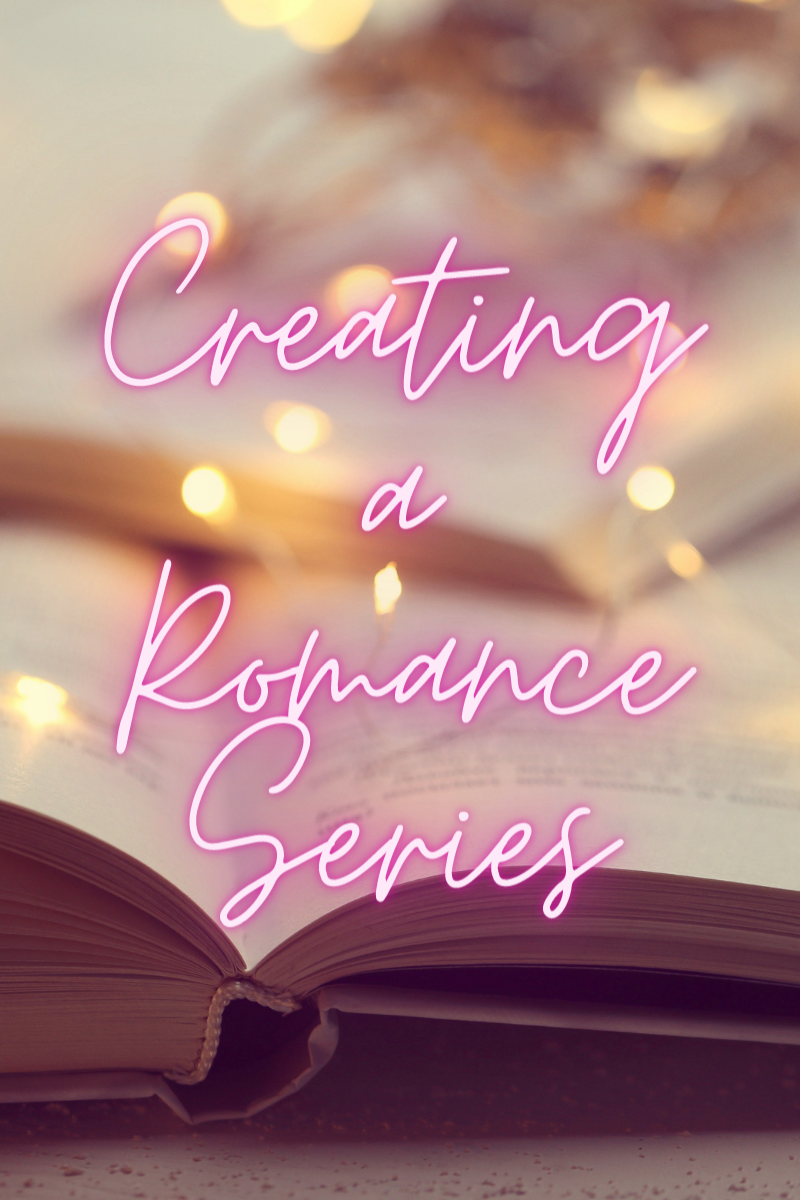Let’s talk narrative voice and how to use characters’ perspectives to get them a happily ever after in a romance.
First-person POV, second-person POV, and the various third-person POVs are different kinds of narrative voice. (I’m going to use voice and POV pretty much interchangeably here.) So let’s go through each one and discuss how they work and when to use them in romance.
First-person POV
With first-person POV, you’re in a character’s head and they’re using “I” to narrate the story. It’s basically like the character is talking to the reader directly and telling them every thought that crosses their mind.
E.g. “I caught his eye from across the room.”
When should you use first-person? When you want the reader to be incredibly close to your protagonist(s) and have the reader feeling/thinking/seeing/etc. everything that the character is. This works great for high-angst stories when you want the reader to have visceral reactions to the story, or if you have lots of world-building and want to create a visceral, immersive experience for your reader. First-person has been the most common POV lately in certain contemporary sub-genres (dark romance, some adult contemporary, mafia), New Adult, fantasy, and YA.
People have big feelings about first-person (and about third-person, for that matter): they either love one and hate the other. Do not get super caught up in this—you’re never going to please everyone. (More on this near the end about which POV you should choose.)
Second-person POV
Second-person is tricky, because the narrator doesn’t have their own individual voice, but is talking directly to another character by using “you.”
E.g. “You caught his eye and beckoned him over to you.”
It’s very hard to do second-person, and you need to have a good reason to do it to justify it over the course of a whole book. I see it mostly in fanfic when there is a self-insert Reader or original character, but I would not recommend it for published romance. (You can get away with it in literary fiction, maybe, but not in romance.) Where I think it can work in romance is when you need to hide the identity of the narrator, e.g. a baddie in a mystery/thriller, especially if they’re sinister and threatening to the protagonist(s). I’ve seen it done in romantic suspense with an occasional POV of the stalker or the killer. Again, a very tough sell, and you’d have to really convince me it needs to be there.
Third-person limited
In third person limited (or close) POV, you use he/she/they/etc. to refer to the POV character(s). The character is telling you their thoughts and feelings, but unlike in first-person, there’s mediation between the character and their actual emotions through the narration.
E.g. She caught his eye and beckoned him over. His expression went from confused to surprised to...pleased? Whatever he was thinking, he schooled his features before approaching her.
Third-person limited is common in historicals, contemporary (rom-coms, some adult contemp), and paranormal. This POV is great if you have an unreliable narrator who’s clearly misreading the signs they’re given, or if you want a bit of a wider narrative lens than you’d get in first-person.
Deep POV
Deep POV is a subset of third-person limited. You are deep (duh) in a character’s head and immersed in their thoughts and feelings—basically like first-person POV except using third-person pronouns and only a tiny bit of mediation through the narrator. There’s no “she felt” or “she thought”—those filler words aren’t necessary in deep POV.
E.g. She caught his eye and beckoned him over. He looked surprised for a moment, and her heart jolted. Was he nervous around her?
If you’re using third-person in romance, you probably want to be using deep POV—romance is all about character and emotions, and you get more immediate access to them with deep POV.
Third-person omniscient
Third-person omniscient POV is a narrator who is not a character in the story but has access to the perspectives of ALL the characters, and the characters are still referred to as he/she/they/etc. The narrator can give each of their perspectives as needed. It gives a bird’s-eye view of the story and characters, but it’ll never get deep into any character’s thoughts and feelings.
E.g. She caught his eye and beckoned him over. He was bewildered that she wanted him, of all people.
Third-person omniscient was popularized by Jane Austen—and you know I love my girl Jane, but unless you are actually Jane, you probably want to avoid omniscient and stick with limited or deep POV. Omniscient is just not in fashion at the moment, and most people will mistakenly believe that you’re head-hopping (which is also not on trend).
What’s the difference between head-hopping and omniscient? Head-hopping happens when you switch from one character’s deep POV to another within the same section. In omniscient, you’re not in deep POV so your narrator can easily move from one character’s perspective to another. The difference is very subtle! But you can only do limited OR omniscient—not both in the same story (usually).
Head-hop:
She caught his eye and beckoned him over. His expression went from confused to surprised to...pleased? He plastered on a smile, knowing that this could be his chance.
Omniscient:
She caught his eye and beckoned him over. He was bewildered that she wanted him, of all people.
What voice should you be writing in?
Any POV is doable if you write it well. I have my own preferences for POV, but when it’s done well, I don’t even notice what POV the book is being written. You need to know the voices of your characters and how to express their POV in the way that works for you, for your reader, and for your genre. And you’ll need to look at comps, books like yours (in the same genre with a similar vibe to you and targeting for similar readers) to see which POV is used most often.
The question I get most often from clients is “should I write in first- or third-person? I don’t like one of them, but that’s the one that seems to be selling most.” Unfortunately, I can’t answer that for you if you’re self-publishing because it’s ultimately your choice whether you want to write a POV that feels easy and brings out your best writing or a POV that might sell well (because wow, some readers will not even pick up a book if it’s in a POV they don’t like, or will rate it low because of the POV they don’t prefer).
I spoke about this more in-depth here—but if you don’t want to watch a video, basically the point is that there is value in doing the POV that works best for your creativity because you’ll attract people who are into that AND trends get started by people doing something different and outside the market-prescribed box. But there is also no shame in writing to market either! It really depends on what your goal is.
Should you use single or dual/multiple POV?
This is a separate question from voice, but just as important. When should you use just one narrator, and when should you use more than one?
Single POV—where you only get one character’s POV for the entire book—is best to use when the story is very much about the arc of that one character, and the arc of the other protagonist(s) is secondary. More often, how I like to see it used is when the other protagonist(s) has something to hide or that can’t be revealed to the reader or to the POV character if we were in the other person’s head. So we can’t know that he’s harboured a secret crush on our first-person character since he was their childhood bully, but there should be signs that the first-person character misses entirely but are legible to the reader.
If you’re doing multiple POVs, how many should you use? Ideally I’d say just the main protagonists of the book, so for most romances, this is two. But for why-choose romance or a book that has two (or more) main relationships, you could have three or four or more. But then you as the writer have to keep track of all these voices, and that’s a lot of unique perspectives to juggle. Not every character needs a POV, so choose wisely.
With multiple POVs, I usually recommend keeping the voice the same for each POV, i.e. not using first-person for one character and then third-person for another. It’s absolutely possible to use first and third in the same book, but I personally find it jarring when it switches back and forth. It is, however, a great way to distinguish between different characters—we’ve all experienced the confusion of not knowing which character’s head we’re in in first-person because their inner narratives sound too same-y.
Each character should be distinctive in their voice so that you don’t have to flip back in the section to figure out who it is or look at the top of the chapter to see which voice is narrating. To me, this is lazy shorthand to tell the reader who the character is at each chapter/section break—it should be obvious from the way that character thinks and speaks, so make sure each character has their own unique quirks that set them apart.
Questions about POV or voice? Let me know!







